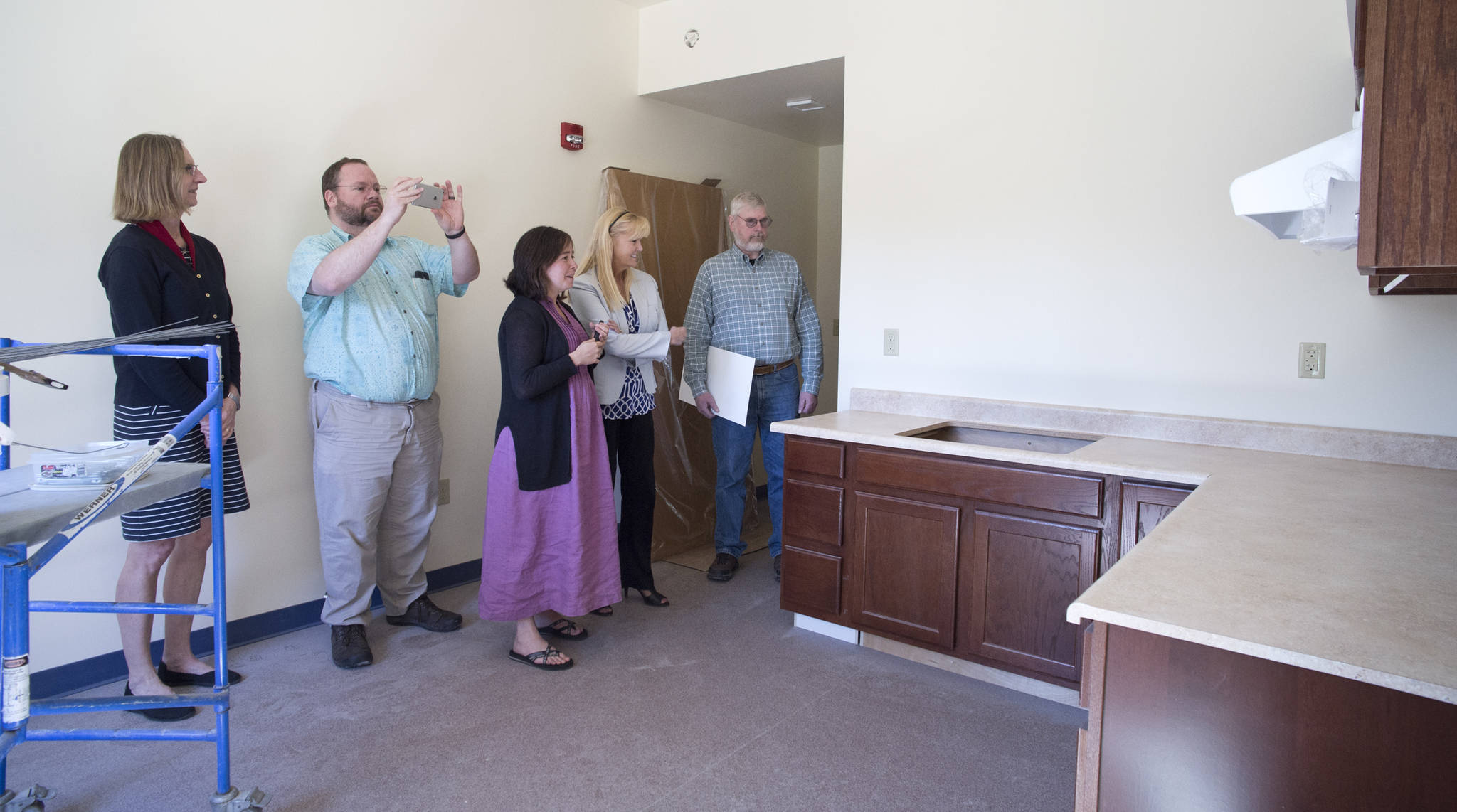A year to the day after breaking ground for Juneau’s Housing First facility, many of the organizers gathered there Tuesday.
First they accepted a check from Wells Fargo, one of the final bits of funding for the project that’s estimated to cost $7.6 million. The City and Borough of Juneau recently pledged the last large chunk of money to the project, approving a $1.2 million grant in April.
The sound of electric drills, hammers and ‘80s rock from a boom box blared from the facility as Glory Hole Director Mariya Lovischuk stood in front, beaming.
“Finally, after so many years, we can finish,” Lovischuk said. “It’s a really great feeling.”
Construction is still on schedule to finish in late June, and the rooms are starting to come together. The facility, which will provide housing for up to 32 individuals with addictions and mental illness, will move residents in little by little.
The first wave of residents will include eight people, and Housing First is well on its way to selecting them. The Juneau Housing First Collaborative (JHFC) is basing its selection partially on a vulnerability study — a survey of which people in the community are the most at risk — of the area.
This study was done over a span of six weeks, finishing up this past Monday. Staff from the Glory Hole, the St. Vincent de Paul Society, Juneau Alliance for Mental Health, Inc., the Juneau Police Department and others tracked 96 homeless individuals, paying close attention to how long the people had been homeless and how often they required emergency services.
They recorded these and other observations and entered the data into the Alaska Homeless Management Information System (AHMIS). The AHMIS then computes a person’s “vulnerability score,” displaying how likely that person is to die on the street. Many people who enter supportive housing have a score around 12, but Lovischuk said many of the people they’ve surveyed in Juneau have a score of 17.
“Traditionally, you’re eligible for permanent supportive housing nationally if you’re above 10,” Lovischuk said, “and 17 is really high. Our folks who we’ve interviewing are ranging from eight to 17.”
The AHMIS has already produced a list of the 96 people surveyed in order of how vulnerable they are, and the JHFC will meet next Friday to determine how best to start moving them in.
Those who do get selected will move into a facility that includes living quarters that are around 300 square feet (some a little larger, some a little smaller) with a bathroom and cooking space as well as a bed and small living area. There will also be a clinic there, run by JAMHI. The clinic will have three exam rooms, two behavioral health offices, an office for a Consumer Medication Coordinator to prescribe medication and a dental care area.
The building — located just off Jenkins Drive in Lemon Creek — is the culmination of years of effort from people all around Juneau and beyond. Lovischuk and JHFC Board President Stephen Sorensen expressed gratitude for the CBJ for providing funding in a pinch, Alaska Marine Lines for cutting them a deal on shipping and all of those on the JHFC who brought different skills and connections to the table.
“It takes everyone to come together to make something like this happen,” Sorensen said Tuesday, standing just a few feet from the front doors that will be open in just two months.
• Contact reporter Alex McCarthy at alex.mccarthy@juneauempire.com or 523-2271.

